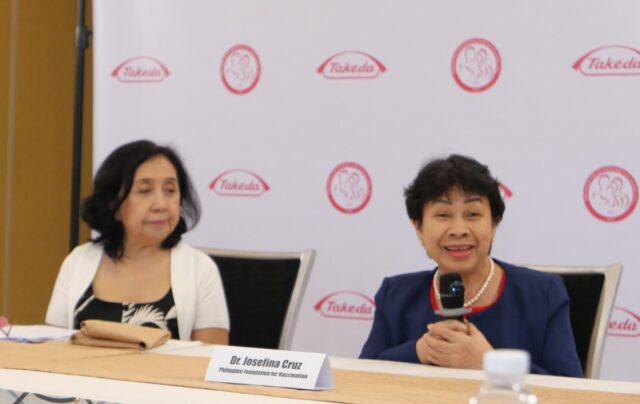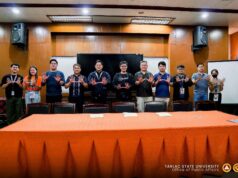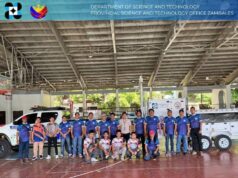Vaccination saves lives, and every Filipino deserves access to scientifically proven safe and effective vaccines in the fight against some of the world’s deadliest diseases.
Immunization can also have significant economic benefits. As Dr. Josefina Carlos, pediatric infectious disease expert, explained: “If we are able to save families [through vaccination], then everyone can be happy. If we don’t get sick, then we are able to save. Immunization becomes an investment for our health.”
At a media roundtable during the 26th Philippine National Immunization Conference (PNIC) in Pampanga, Dr. Carlos and Dr. Rose Capeding, President of the Philippine Foundation for Vaccination (PFV), highlighted the proven safety and efficacy of vaccines. Carrying the theme “Advancing Better Immunization for Every Filipino,” the conference gathered together some of the country’s top experts in infectious diseases, public health, and vaccinology for two days of learning with healthcare professionals.
The roundtable, ‘Novel Vaccine Advocacy and Public Health Priorities,’ included discussions on new vaccines for shingles and dengue. PFV organized the event in partnership with Takeda Philippines, a company committed to advancing better health through innovative, science-based treatments.
Based on World Health Organization data, vaccination saves an average of six lives every minute. In the past 50 years alone, the WHO estimates that vaccination has saved 154 million lives worldwide, most of them children.
In the Philippines, immunization programs had been historically successful, helping end two waves of polio outbreaks (2000 and 2021) and eliminating maternal and neonatal tetanus (2017). In recent years, however, public trust in vaccination has been threatened by misinformation, particularly unverified or outright fake news found online.
On the brighter side, recent reports indicate that vaccine acceptance among Filipinos has been improving, with initial information showing the country is overcoming vaccine hesitancy. This is why the Philippine Foundation for Vaccination has been active in its advocacy to provide accurate and science-backed information on vaccines and vaccine-preventable diseases.
Said Dr. Capeding: “The Philippine Foundation for Vaccination is an advocacy group whose aim is for vaccination to become an essential part of protection for every Filipinos … in different stages of life—infancy, childhood, adolescence, adulthood, and for the elderly. It’s a life course [approach].”
PFV’s advocacy covers not just families, but also the media and fellow doctors. The WHO, in fact, recognizes the expertise of the group. Said Dr. Capeding: “PFV is a member of WHO’s Vaccine Safety Net. Together with China, we are recognized by the WHO [providing] credible, science-based information regarding vaccination.”
The vaccine experts also sounded a warning on the burden of shingles or herpes zoster, a viral infection caused by the varicella zoster virus (VZV), which also causes chickenpox. More than 90 percent of adults 50 years and older are VZV carriers, and their risk of developing shingles increases as they get older, if they are immunocompromised, or if they have a history of chickenpox.
Patients with shingles experience skin sensitivity, tingling, itching, or pain, followed by skin rashes that turn into blisters. Some patients experience long-term, debilitating nerve pain.
Shingles vaccination, which is available in the Philippines, has been shown effective against shingles and its complications, including long-term nerve pain.
The doctors also addressed media questions on dengue and the importance of vaccination in integrated disease control and prevention.
The Philippines is one of the countries in the world where dengue is endemic.
DOH surveillance data from January to September 20, 2025, recorded 234,855 cases, with 912 deaths. Initial monitoring data for the first half of October 2025 recorded 8,460 cases.
Of the newer vaccines, Takeda’s dengue vaccine, TAK-003, has demonstrated protection against all four serotypes of dengue. Based on TAK-003’s safety and efficacy data, the WHO has included it on its list of prequalified vaccines, recommending it for specific age groups living in areas where there is a high dengue burden. It is also the first approved dengue vaccine in the European Union for individuals regardless of previous dengue exposure.
Since 2022 it has been approved in 41 countries and 20 million doses have been distributed in 11 endemic countries as of September 2025.
The pivotal Phase 3 Tetravalent Immunization against Dengue Efficacy Study (TIDES) trial, which recently released TAK-003 data covering seven years, reinforced the vaccine’s long-term safety profile and confirmed that the two-dose regimen provides sustained protection against dengue. The Philippines is one of the dengue-endemic countries participating in the TIDES trial. TAK-003 is currently under review with the Philippine Food and Drug Administration.
PFV Executive Director Dr. Lulu Bravo, who joined online, said: “We should be prepared for the next pandemic—and what could be the next pandemic? It could be dengue.” She added that dengue is now more prevalent globally, saying, “It used to be only in tropical countries like the Philippines. But now, more than 130 countries are affected by dengue.”
The PFV and its allies assure the public that they will continue to work to provide science and evidence-based, accurate information on vaccines, to inspire vaccine confidence and contribute to public health improvements.
Concluded Dr. Bravo: “The Philippine Foundation for vaccination is calling for action for everyone, including media, to become vaccine warriors. Let us all work together to become vaccine champions.”





